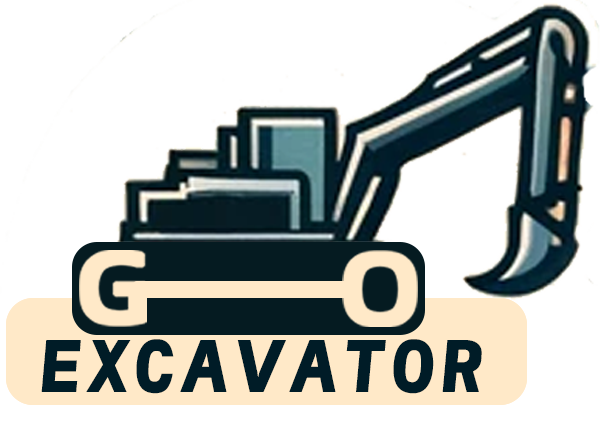
When it comes to maximizing the utility of your mini excavator, an auger attachment is one of the most valuable tools you can add. Whether you’re drilling post holes, planting trees, or setting up fences, the right auger makes all the difference.
Understanding Augers for Mini Excavators
Before diving into the factors to consider, it’s important to understand what an auger is and how it functions. An auger is a drilling tool designed to make holes in the ground, particularly in soil, clay, gravel, and sometimes soft rock. It consists of a helical screw blade that rotates to remove material from the hole being drilled.
Auger Components
An auger typically consists of three main components:
- Drive Unit: Powers the rotation of the auger.
- Shaft: The central part where the helical screw is attached.
- Bit or Tooth: The cutting edge that bores into the material.
Now that we have a basic understanding of the auger, let’s explore how to choose the right one.
Factors to Consider When Choosing a Mini Excavator Auger
1. Soil Conditions
The type of soil you plan to work with plays a significant role in the auger selection process. Different augers are designed to handle specific types of materials. For example:
- Soft Soil: For sand, loam, or clay, a standard dirt auger will suffice.
- Hard Soil: If you’re dealing with rocky or compacted soil, you’ll need an auger with reinforced teeth and a stronger cutting edge.
- Rocky Terrain: Special rock augers, equipped with more robust teeth, are ideal for tougher materials like gravel or soft rock.
It’s essential to match the auger to the material you’ll be working with to ensure efficiency and avoid equipment damage.
2. Excavator Compatibility
Not all augers are compatible with every mini excavator. You’ll need to ensure that the auger attachment you choose is suitable for your specific machine. Here’s what to check:
- Hydraulic Flow Rate: The auger’s hydraulic motor requires a specific flow rate to function optimally. Ensure your excavator’s hydraulic system meets the flow rate required by the auger.
- Mounting System: Check that the auger has the correct mounting system for your excavator. Most augers are designed to fit standard mounting brackets, but it’s always best to verify compatibility.
3. Auger Size and Diameter
Augers come in various sizes and diameters, each suited for different tasks. Choosing the right diameter depends on the size of the holes you need to drill:
- Small Holes: For fence posts or small trees, an auger with a 6-12 inch diameter is sufficient.
- Medium Holes: For larger trees or utility poles, you may need a 12-24 inch diameter.
- Large Holes: Anything above 24 inches is typically used for heavy-duty construction or industrial tasks.
The length of the auger shaft is another consideration, as it determines how deep you can drill. Be sure to select an auger long enough to meet your project needs.
4. Torque Requirements
The torque generated by the auger’s motor is what enables it to dig into the ground. The harder the soil, the more torque you’ll need. For lighter jobs like drilling in soft soil, a low-torque auger will do the job. However, for tough conditions like rock or heavily compacted earth, you’ll need an auger with high torque output.

5. Bit Type
Auger bits come in a variety of shapes and sizes, depending on the type of material you’re drilling into. Common bit types include:
- Standard Bits: Ideal for soft to moderately hard soil.
- Rock Bits: Feature reinforced teeth for drilling into rocky terrain.
- Tree Bits: Designed with wider blades to help make planting holes for trees or shrubs.
Selecting the right bit is crucial for achieving the best results with minimal wear on your auger.
6. Budget
As with any equipment investment, your budget plays a role in determining which auger to purchase. Auger attachments can vary in price depending on size, brand, and durability. Generally, higher-quality augers with features such as reinforced bits and high torque capacity will cost more but will last longer and perform better in challenging conditions.
7. Durability and Build Quality
A well-built auger made from high-grade materials will not only last longer but handle more demanding tasks. Look for augers that use durable steel for the shaft and teeth. Some premium models come with additional coatings or reinforcements that make them resistant to wear and tear, especially when used in tough conditions.
8. Maintenance and Servicing
Another key factor to consider is the ease of maintenance. Augers require regular checks for wear, particularly on the cutting teeth. Some models come with replaceable teeth, which can save you money in the long run. Ensure that the auger you choose is easy to maintain and that spare parts are readily available.
9. Brand and Warranty
Finally, consider the brand and warranty offered. Established brands often provide more reliable performance and better customer support. A strong warranty can give you peace of mind, ensuring that any potential issues are covered.
Choosing the right mini excavator auger is essential for ensuring that your projects run smoothly and efficiently. By carefully considering factors such as soil conditions, excavator compatibility, auger size, torque requirements, and build quality, you can make an informed decision that meets your specific needs.
A Comprehensive Guide to Buying a Excavator Second Hand
Purchasing a second-hand excavator can be a cost-effective solution for your construction or landscaping needs. However, buying used machinery comes with its own set of challenges and considerations. This comprehensive guide will walk you through [...]
Comprehensive Guide to Hyundai Mini Excavators: Features and Prices
Mini excavators have become indispensable tools in the construction and landscaping industries. Hyundai Construction Equipment, a global leader in heavy machinery, offers a range of mini excavators known for their reliability, efficiency, and advanced features. [...]
How to Extend the Service Life of Excavator Parts
Excavators are indispensable machines in the construction and mining industries. They perform heavy-duty tasks that demand robust components and meticulous maintenance. Extending the service life of excavator parts not only reduces operational costs but enhances [...]
Kymron Excavators: Innovative, Sustainable Construction Machinery
In the dynamic world of construction and heavy machinery, Kymron has emerged as a game-changer. Specializing in advanced excavator technology, Kymron is redefining industry standards with its commitment to innovation, efficiency, and sustainability. Company Overview [...]
Bulldozer vs. Wheeled Excavator: Which Machine is Better for Moving Soil?
Moving soil is a fundamental task in construction, landscaping, and earthmoving projects. Choosing the right machinery for the job can significantly impact efficiency, cost, and project timelines. Two of the most commonly used machines for [...]
Why Are Small Excavators Favored? A Comprehensive Guide
In the world of construction and landscaping, efficiency and versatility are key. Among the myriad of machinery available, small excavators have risen in popularity. But what makes them so favored? Introduction to Small Excavators Small [...]




